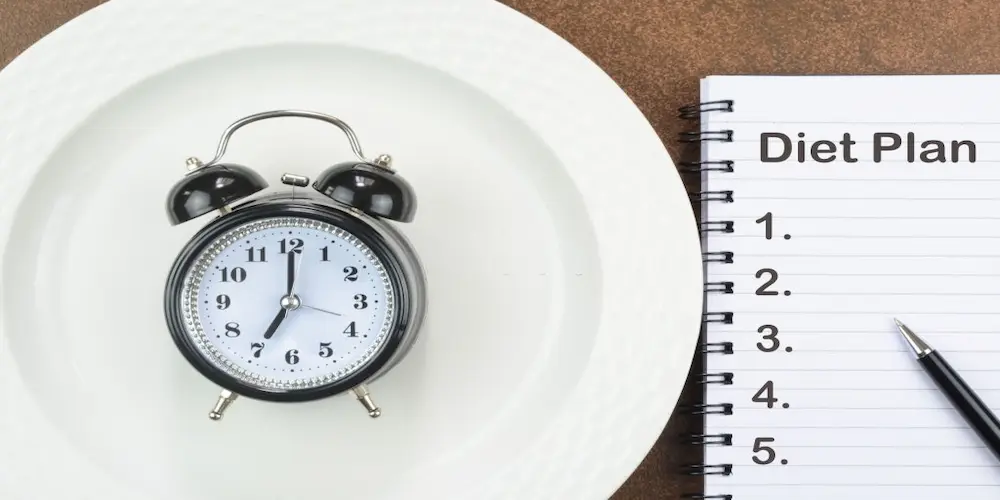What Does A Registered Dietitian Do In Lahore? 8 Crucial Signs You Desperately Need One
In today’s world, every person has a different lifestyle and a whole new set of needs that come with that specific lifestyle.
Say for instance, a teenage boy would have different dietary needs than a working woman in her 40s. But how do you know what your body needs at different stages in your life and for that a dietitian is required but What Does A Registered Dietitian Do In Lahore?
How do you know what specific foods you should be eating to function at your maximum capacity?
Food sustains you through your days, and it is important to know what you’re consuming and how much. But this can be a tricky job and not everyone has the time to spend hours figuring this out.
This is where a dietitian comes in.
The term dietitian is used to identify qualified professionals who have the skills required to provide expert nutritional and dietary advice to individuals looking to improve their physical health, and conduct medical nutrition therapy.
While doing so, they translate the latest scientific information and available research at hand into practical advice relating to what foods to eat and how to eat them in a way that optimizes the nutritional value of these foods.
Furthermore, dieticians also develop specific diet plans individually for people in a way that utilizes their distinct physical requirements such as Basal Metabolic Rates in order to improve their overall health or help cure certain medical conditions.

Who can be a dietitian?
Although acquiring knowledge about the mechanisms of the human body in relation to food is an opportunity available to more or less every individual, not everyone can be a dietitian. There are certain requirements that Dietitians have to fulfill in order to qualify for the field.
They must have valid university qualifications gained from courses accredited by the Dietitians Association in the given country and must keep up to date with the newest training and education, as well as meet the Associations guidelines for evidence-based practice.
Furthermore, the minimum requirement for a dietitian a BSc Honors in Dietetics, or a related science degree in addition to a postgraduate diploma or higher degree in Dietetics.
The dietetic courses are structured in a way that includes biochemistry, physiology, applied sciences as well as research methods underpinning nutrition and dietetics.
These are often also complemented by social and behavioral sciences as well as theories of communication in order to develop the critical communication skills required for professional dietetic practice in the field.
It is due to this reason, that dietitians play a vital role in the promotion of good health in the general populace and must be consulted wherever need may arise.
How do dietitians devise diet plans?
A dietitian takes various factors into consideration when developing a diet plan. This includes determining the quantities of the 3 essential macronutrients needed to maintain a balanced diet that are specific to the differing needs of each individual.
These levels may depend on an individual’s physical factors like age, gender, and height as well as their daily routine such as physical activity, and any dietary restrictions and physical conditions.
Once all this is determined, a dietitian will then move on to deciding what sources of food to include in the plan that contain these macros and in what proportions.
A different meal plan may be set for each day of the week, highlighting important food groups as well as groups to avoid altogether depending on the individual at hand. The table below breaks down the macronutrients for different goals:
| Goal | Protein (%) | Carbs (%) | Fats (%) |
|---|---|---|---|
| Muscle Gain | 30% | 50% | 20% |
| Weight Loss | 40% | 30% | 30% |
| General Fitness | 30% | 40% | 30% |
| Endurance Training | 20% | 60% | 20% |
What kind of services do dietitians provide?
Dietitians are known to work in a wide range of areas of health within sectors of both private and public health. Some of these areas are described in detail below:
Patient care: This particular service is provided in hospitals and nursing homes in the public sector and dietitians focus on educating patients on eating well towards healthy recovery.
The diets prescribed here are by the medical treatments being provided and the dietary restrictions that the patient might be on.
Patient’s nutritional needs are taken into consideration while determining the macronutrients. Patients recovering from conditions such as heart disease, diabetes, swallowing difficulties, and poor appetite are prescribed diets that cater specifically to these conditions.
Private consultancy: In this area, dietitians work with individuals, groups, and other organizations to provide dietary advice within education programs and seminars.
These are aimed at raising awareness about eating patterns and the importance of balanced eating within a mass audience.
Community and food industry: Within the community, dieticians may help promote healthy lifestyles by influencing the general public. They can provide services in public health centers and recreational facilities.
Whereas in the food industry, dietitians often work to improve the nutritional quality of foods being manufactured and produced, develop nutrition education campaigns within companies, promote food safety in the manufacturing process, and work with food laws and regulations to bring foods up to the standards of healthy supplementation.
What areas of health do dietitians cover?
Weight loss/gain nutrition: one of the most recurrent themes in nutrition is that surrounding weight.
Whether its loss or gain, a dietitian can help you develop customized meal plans designed for sustainable weight change, so that you can achieve your goals without having to compromise on your general health.
PCOS nutrition: One of the biggest challenges women might face is that of PCOS. Approximately 1 in 10 women of childbearing age suffer from this condition and it has a lot to do with diet.
To keep PCOS in check, many women need the aid of a dietitian to recommend diet plans that are friendly to this condition. So if you’re a woman struggling with PCOS, you will greatly benefit from the services of a dietitian.
Child nutrition: In the modern day, children are prone to all kinds of diseases in addition to unhealthy foods.
Be it malnutrition, eating disorders, or a simple allergy, every child can benefit from an appointment with a dietitian. A healthy child makes an even healthier adult and the cycle does not end there.
Pre-post natal nutrition: Pregnancy is not a cakewalk, and has its share of problems both before and after childbirth. Therefore, diet is a most crucial element in maintaining both yours and your infant’s health. Consulting a dietitian during pregnancy is a compulsory task that every woman should opt for.
Sports nutrition: Nowadays, fitness is on the rise with more and more people heading to the gym. However, without a diet of macronutrients that are fit for your given body type, you will have to work a long time before seeing transformative results. Here, a dietitian will come very handy.
What to expect from a dietitian?
In your initial consultation, your dietitian will inquire in detail about your current diet, physical activity levels, general health, family history and other lifestyle choices.
The duration of the session will depend on the discussion and may run for around 45 minutes to an hour. These questions will allow your dietitian to come up with an individual eating plan fit for your individual needs.

In case of a medical condition due to which you have been referred to by your assigned doctor, the dietitian will also need to work closely with your doctor, keeping in view all of your dietary restrictions and other hindrances attributed to your health.
They may review your blood and other medical test results to place together a suitable eating plan for you containing customized diet rituals.
You may even be given prescribed private meal plans available online right away that you can access from home to help you achieve your healthy eating goals.
After this, you may be called for follow-up appointments that will allow the dietitian to keep track of your progress so far, and make any changes as deemed necessary by your journey.
During this whole procedure, you should expect your dietitian to help you feel better both mentally and physically, and teach you the essentials required to be fit in the long term.
Signs you might need to see a dietitian
Certain indications in your daily life may require you to go and consult a dietitian. These may include the following:
- you may be suffering from digestive problems and conditions such as IBS
- you have been diagnosed with any of these medical conditions; diabetes, high blood pressure, cardiovascular disease, HIV, etc
- you have oral, enteral, or parenteral nutrition requirements
- your child has specialized nutritional requirements
- you are struggling with losing or gaining weight
- you want to improve your athletic performance or general fitness levels
- you want advice about breastfeeding and weaning
- you are struggling with and would like advice about eating disorders

How to get in touch with a dietitian?
Often times, dietitians are provided in organizational health care packages or in health care facilities for patients. However, a person may need to find one privately. For this purpose, they can go online and search for the best Dietitian in their given area, and book a consultation session.
One of the Best dietitians in Lahore is Ms. Ayesha Nasir. She is a very skilled and legally registered dietitian who has a sizable amount of professional training under her belt, offering nutritional advice on a range of subjects.







